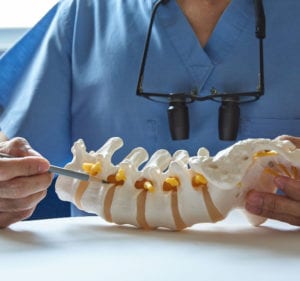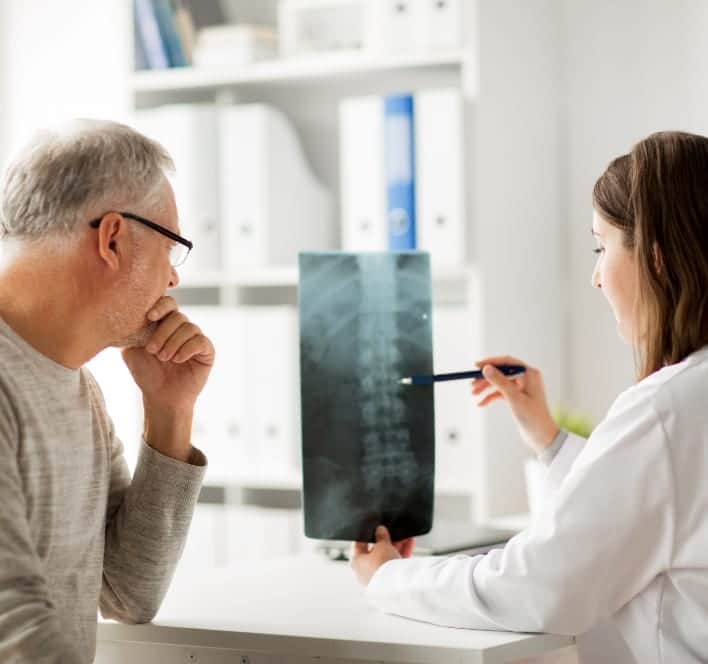You likely have many questions regarding your upcoming spinal surgery, including several about an interbody cage. What is it, and why is it so important during back operations? The board-certified back doctors at New Jersey Spine & Orthopedic may use an interbody cage during surgery, but they will answer all your questions and fully explain its use and benefits first. However, our doctors will always try conservative healing methods, such as physical therapy, before offering a minimally invasive surgery.
What Is an Interbody Cage in Spine Surgery?
An interbody cage serves as a placeholder between the affected vertebrae. Doctors place it in after removing the intervertebral discs that typically occupy the space. The cage allows the bones to grow through it, and the cage eventually becomes part of your spine. Interbody cages have a hollow center with a bone-growth-promoting material inside, such as beta-tricalcium phosphate.
What are the Benefits of an Interbody Cage?
Interbody cages improve the stability and balance of the area your surgeon operated on while relieving pain and restoring function. Overall, the benefits to a spinal cage include:
- Restoring the original height of the intervertebral disc
- Supporting the front part of the spine
- Expanding the bony openings between the vertebrae
- Restoring the standard S-shaped curve of the spine
- Fusing the adjacent vertebrae by encouraging bone growth
- Increasing the space within the spinal canal
Depending on the surgery, your doctor may place more than one cage in your spine.

What Conditions Do Doctors Treat with a Spinal Cage?
There are several conditions that a doctor may use a spinal cage to treat. Three of the most common include:
- Degenerative disc disease: As we age or suffer back injuries, the discs between the vertebrae begin to shrink or tear, causing the bones to rub together.
- Spinal stenosis: This condition refers to the narrowing of the spinal cord, which constricts the nerves. It puts stress on the spinal cord and nerves within the spine.
- Herniated discs: A herniated or slipped disc occurs when the inner disc punctures through the outer ring, causing severe pain and discomfort in your lower back.
If you are unsure why you’re in pain, take our online Pain Assessment Tool. Then, discover treatment options best for you through our Treatment Finder.
When Should I See a Doctor About My Back Pain?
Most back pain will go away on its own within a few weeks. In the meantime, take pain relief medications and do some light stretching. However, if your pain is persistent or increases after a couple of weeks, schedule a doctor’s appointment. Additionally, if you notice any of the following symptoms, seek medical care right away:
- Fever
- Numbness or tingling
- Loss of bowel or bladder functions
You should also contact a medical professional if your back pain results from an accident, such as a car crash. You may feel fine, but you could be suffering from internal injuries only a doctor can diagnose.
Contact NJ Spine and Orthopedics Today!
When you need relief from your back, neck, or spine pain, contact the award-winning spine surgeons at NJ Spine & Orthopedic. Throughout New Jersey, New York, and Pennsylvania, we have offices that treat various medical conditions through minimally invasive surgeries and conservative healing methods. We will work with you one-on-one to eliminate the pain that’s plagued you for so long.
Call (866) 272-9271 or complete our contact form to learn more about our services. No matter your condition, our team is ready to help you!

